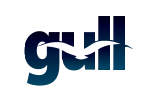
Most people and companies think they can rebuild system by backing up critical data. However, when catastrophe failure occurs, they lose all, including entire operating system, data, setting and applications. Therefore disaster recovery is always an issue not only for enterprise but also for a person.
Clonezilla [1], the 2010 January's Project Of The Month on sourceforge.net [2], is licensed under GPL. It is a partition or disk cloning tool similar to Symantec Ghost or Acronis True Image. Based on partclone, DRBL, and udpcast, Clonezilla allows you to do system deployment and bare metal backup and recovery. The file systems supported by Clonezilla are (1) ext2, ext3, ext4, reiserfs, reiser4, xfs, jfs of GNU/Linux, (2) FAT, NTFS of MS Windows, (3) HFS+ of Mac OS, (4) UFS of FreeBSD?, NetBSD?, and OpenBSD?, and (5) VMFS of VMWare ESX. Therefore you can clone GNU/Linux, MS windows, Intel-based Mac OS, and FreeBSD?, NetBSD?, and OpenBSD?, no matter it's 32-bit (x86) or 64-bit (x86-64) OS. For these file systems, only used blocks in partition are saved and restored. For unsupported file system, sector-to-sector copy is done by dd in Clonezilla.
Two types of Clonezilla are available, Clonezilla live and Clonezilla SE (Server Edition). Clonezilla live is suitable for single machine backup and restore. While Clonezilla SE is for massive deployment, it can clone many (40 plus!) computers simultaneously. Clonezilla saves and restores only used blocks in the hard disk. This increases the clone efficiency. E.g. Clonezilla SE was used to clone 41 computers simultaneously, and it took only about 10 minutes to clone a 5.6 G Bytes system image to all 41 computers via multicasting!
So far the download number of Clonezilla is more than 3,000,000 [3], that implies it's a reliable and popular tool.
In this talk, we will cover how to:
1. Use Clonezilla live to do a bare metal recovery and disk clone
2. Create your own recovery CD or USB flash drive
3. Use Clonezilla SE to do massive deployments
A live demonstration about Clonezilla will be done in the talk, too.
[1] http://clonezilla.org
[2] http://sourceforge.net/blog/potm-201001/
[3] http://sourceforge.net/project/stats/detail.php?group_id=115473&ugn=clonezilla&type=prdownload&mode=alltime&file_id=0
Biography: